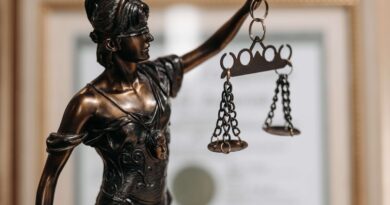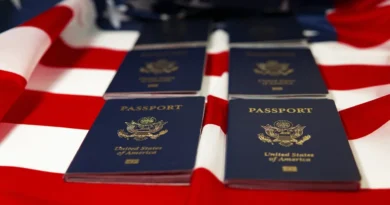What Are The Hidden Dangers Of A National ID
The Dangers of a National ID: A Threat to American Liberties
Table of Contents
What Are The Hidden Dangers Of A National ID. In the age of increasing digitization and enhanced security measures, the idea of a national ID card for American citizens often surfaces in policy debates. It’s a dream tool for the NWO. Proponents argue that a national ID system could streamline government services, enhance security, and reduce fraud. However, beneath these seemingly harmless benefits lies a host of dangers that threaten the very foundations of American liberty. This post explores the profound risks associated with a national ID, particularly how it can be wielded to control American citizens, undermining privacy, freedom, and democracy.
The Erosion of Privacy
One of the most significant dangers of a national ID system is the erosion of privacy. A national ID card would likely contain a wealth of personal information, from biometric data to financial and medical records. This centralization of sensitive data makes citizens vulnerable to unprecedented levels of surveillance and data breaches.
Government Surveillance
With a national ID, the government would have the tools to monitor its citizens’ activities more closely. Every time an ID is used – whether for voting, accessing healthcare, or making financial transactions – a digital record is created. This data could be tracked and analyzed to build comprehensive profiles on individuals, including their habits, movements, and associations. In the wrong hands, such information could be used to stifle dissent and control the populace.
Data Breaches and Identity Theft
Centralized databases are prime targets for hackers. A breach in a national ID database could expose millions of citizens to identity theft and fraud. Unlike a credit card number, which can be changed, biometric data like fingerprints or retinal scans cannot be altered. Once such information is compromised, the damage is irreparable. The risk of cyber-attacks thus presents a significant threat to individual security and privacy.
The Threat to Civil Liberties
A national ID system poses a direct threat to civil liberties, particularly freedom of movement, freedom of expression, and the right to protest.
Restricting Movement
In countries with national ID systems, authorities often use IDs to control movement. For instance, during emergencies or political unrest, the government could restrict travel by requiring ID checks at checkpoints, airports, and train stations. This could lead to a situation where only those deemed “acceptable” by the state can travel freely, while others are confined or surveilled more intensely.
Stifling Dissent
National IDs can also be used to suppress dissent. Governments can track and target activists, journalists, and political opponents using ID data. In extreme cases, ID cards can be deactivated or flagged, preventing individuals from accessing essential services, thereby coercing them into silence. The fear of such repercussions can lead to widespread self-censorship and a chilling effect on free speech.
The Potential for Discrimination
What Are The Hidden Dangers Of A National ID. A national ID system could exacerbate existing inequalities and lead to discrimination. Minority groups, immigrants, and low-income individuals could face heightened scrutiny and barriers due to biases in the system.
Racial and Ethnic Profiling
Law enforcement agencies could use national IDs to engage in racial and ethnic profiling more effectively. By cross-referencing ID data with other databases, authorities could disproportionately target certain communities for surveillance and enforcement actions, perpetuating systemic discrimination and injustice.
Socioeconomic Discrimination
Access to a national ID card could become a prerequisite for receiving government services, employment, housing, and healthcare. Those without an ID, or those with errors in their ID data, could find themselves excluded from critical aspects of society. This could particularly affect the homeless, undocumented immigrants, and others who may already face barriers to obtaining identification.
The Path to Authoritarianism
The most alarming danger of a national ID system is its potential to pave the way for authoritarian governance. With extensive surveillance capabilities and control over citizens’ movements and access to services, a government could easily slip into authoritarian practices.
Centralized Power
A national ID system centralizes power in the hands of the state. By controlling the issuance and use of IDs, the government gains a powerful tool to manage and manipulate the populace. This concentration of power can erode checks and balances that are essential to a healthy democracy.
Historical Precedents
What Are The Hidden Dangers Of A National ID. History is replete with examples of governments using identification systems to control and oppress. In Nazi Germany, identity cards were used to target Jews and other minorities for persecution. In apartheid-era South Africa, passbooks were used to enforce racial segregation. These examples serve as stark reminders of how identification systems can be weaponized against citizens.
Safeguarding Against the Risks
Given the profound dangers associated with a national ID, it is crucial to consider safeguards and alternatives that protect individual freedoms while addressing legitimate concerns about security and fraud.
Decentralized Systems
Instead of a centralized national ID, decentralized systems that use multiple forms of identification could be more effective. By dispersing data across various entities, the risk of a single, catastrophic breach is reduced, and no single authority has complete control over citizens’ identities.
Strong Privacy Protections
Any identification system must be accompanied by robust privacy protections. This includes strict limitations on data collection, retention, and sharing. Citizens should have the right to know what data is collected about them and how it is used, with avenues for redress in case of misuse.
Public Oversight and Accountability
Transparency and accountability are key to preventing abuse. Public oversight bodies should be established to monitor the implementation and use of identification systems. These bodies should have the power to investigate and hold authorities accountable for any violations of citizens’ rights.
What Are The Hidden Dangers Of A National ID
Conclusion
What Are The Hidden Dangers Of A National ID. While the idea of a national ID might appear to offer solutions for security and administrative efficiency, the potential dangers it poses to American liberties cannot be overstated. From eroding privacy and civil liberties to paving the way for discrimination and authoritarianism, a national ID system represents a profound threat to the principles of freedom and democracy that underpin American society.
In considering the implementation of such a system, it is imperative to weigh these risks carefully and to prioritize the protection of individual rights and freedoms. By doing so, we can ensure that the pursuit of security does not come at the cost of the very liberties that define us as a nation.




